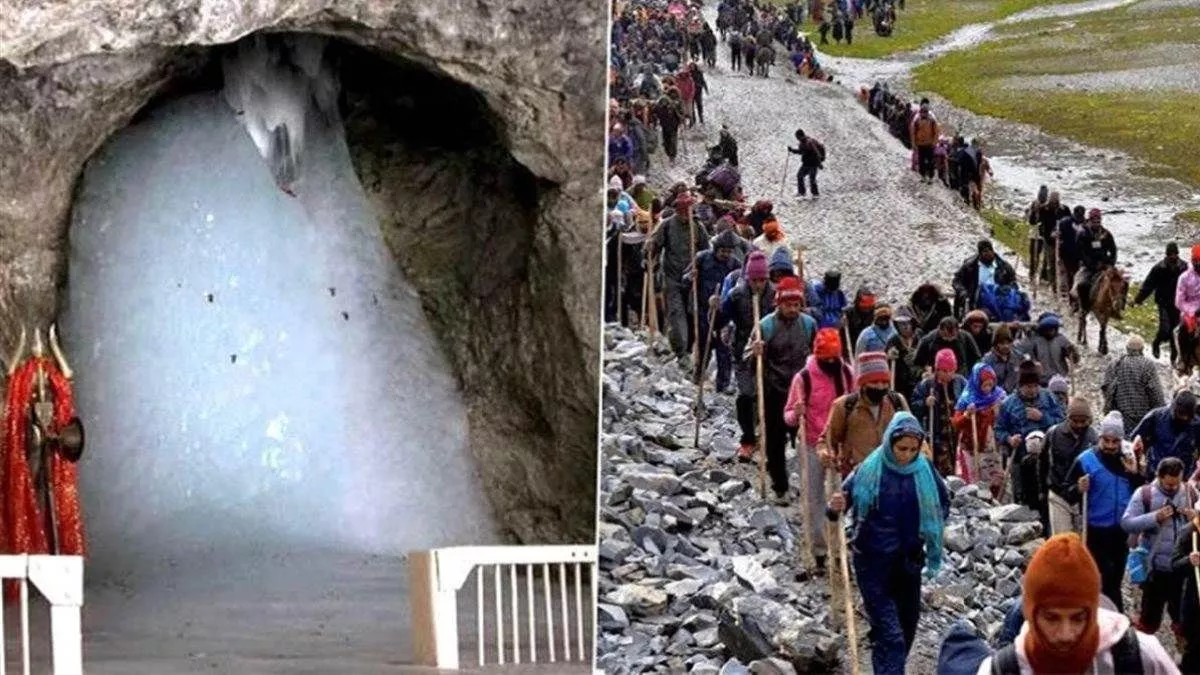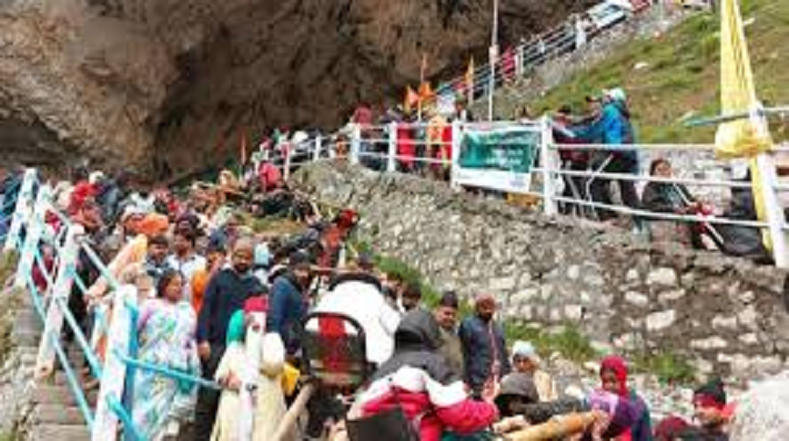Amarnath Yatra 2025: Amarnath Yatra was stopped a week ago, why did such a decision have to be taken suddenly?
- bySherya
- 03 Aug, 2025


The annual Amarnath Yatra has been postponed prematurely due to bad weather and deteriorating condition of the routes. The yatra was scheduled to end on Raksha Bandhan on 9 August but was suspended three days earlier. Officials said the routes needed to be repaired due to heavy rains.
The annual Amarnath Yatra has been suspended from Sunday, nearly a week ahead of its scheduled conclusion, which was scheduled to coincide with the festival of Raksha Bandhan on August 9. Authorities have cited persistent bad weather and deteriorating conditions of the yatra routes as the main reasons for the premature closure of the yatra.
The pilgrimage was temporarily halted three days ago due to heavy rains in the region. On Saturday, authorities announced that the yatra would not resume from either of the two traditional routes, Baltal or Pahalgam, due to the unsafe condition of the tracks and the need for urgent repair work.
Road damaged by rain
According to Kashmir Divisional Commissioner Vijay Kumar Bidhuri, the terrain has been badly affected by recent heavy rains, making the route unsafe for pilgrims. He said both routes require immediate repair and maintenance, and it is not possible to continue the yatra while deploying men and machinery for repairs.
According to Shri Amarnath Shrine Board data, despite the premature end of the yatra, nearly four lakh pilgrims managed to visit the holy cave shrine this year. However, officials admitted that the number of pilgrims had declined sharply last week, possibly due to weather-related disruptions.
Security was beefed up significantly for this year's yatra in the wake of a major terror attack in Pahalgam on April 22. The government deployed over 600 additional paramilitary force companies in addition to the existing forces, making it one of the most heavily guarded pilgrimages in the country.
The pilgrims were transported in tightly guarded convoys from Jammu to both base camps and civilian movement was restricted on the Srinagar-Jammu national highway during the convoy hours. The Amarnath Yatra, which traces its roots to the discovery of the cave by a Muslim shepherd named Bota Malik in the 1850s, has historically been seen as a symbol of Kashmir's syncretic culture.
Residents say only those directly involved in the yatra, such as pony operators and palanquin bearers, still maintain regular contact with the pilgrims



